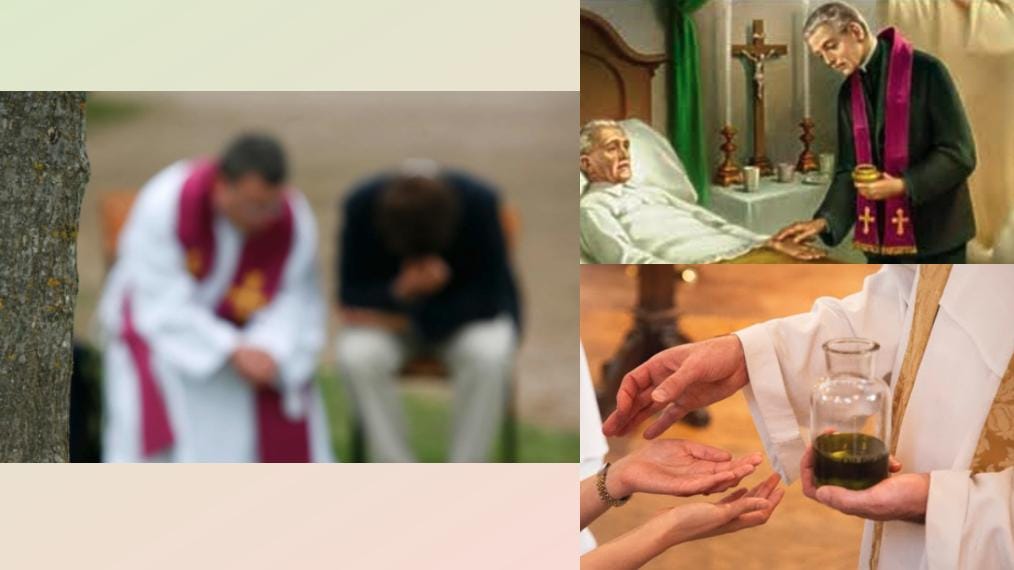Embracing the Sacraments of Healing: Reflections on James 5:13-20
May 25, 2024 - Saturday of the Seventh Week in Ordinary Time
James 5:13-20
There are seven sacraments in the Catholic Church. Three of them are called the sacraments of Christian initiation - baptism, confirmation, and the Eucharist - through which we receive new life in Christ. Two of them are called the sacraments of healing - the sacrament of penance and the sacrament of anointing of the sick - through which we are restored in physical and spiritual wellbeing.
In today's portion of the letter of James, the apostle advises those who are sick to call the presbyters of the Church to pray for them and anoint them "with oil in the name of the Lord" (James 5:14). This practice goes back to Jesus and His apostles. The Gospel of Mark records for us that the apostles "anointed with oil many who were sick and healed them" (Mark 6:13). The Church has continued this apostolic practice until now, and the sacrament of anointing of the sick has brought healing to many.
It is worth noting that James calls this sacrament a "prayer of faith" and indicates its following effects: it "saves the one who is sick, and the Lord will raise him up — and if he has committed sins, he will be forgiven" (James 5:16). The Church, in its theological reflection, builds on James' teaching and teaches us of the following fruits of this sacrament. It unites "the sick person to the passion of Christ", it gives "strength, peace, and courage to endure in a Christian manner the sufferings of illness or old age", it brings "the forgiveness of sins", "the restoration of health, if it is conducive to the salvation of his soul", and it prepares "for passing over to eternal life" (see CCC, 1532).
The other sacrament of healing that James encourages us to practice is the confession of sin: "confess your sins to one another" (James 5:16). We often do it without even realizing it. We usually 'confess' our sins to our close friends and recently with psychologists and counselors. Some do it even on social media. But such confession of sins brings only temporary relief. None of those people can pronounce the words: "your sins have been forgiven, go in peace" (see Luke 7:48-50). Jesus, who during His ministry forgave sins, gave the same power to the Church: "Receive the Holy Spirit. If you forgive the sins of any, they are forgiven them; if you withhold forgiveness from any, it is withheld" (John 20:22-23).
Many have noticed that in the past 60 years, these two sacraments have fallen into disuse. The sacrament of the anointing of the sick has been seen by the faithful as the last sacrament given only to those close to death. On the other hand, for various reasons, the faithful in many parts of the world have stopped taking advantage of the sacrament of penance. I think it unfortunate. The Catechism of the Church reminds us that through the sacrament of penance we are restored to God's grace and reconciled with the community of the Church (see CCC, 1468-69). Who would not like it?
I have witnessed the power of the sacrament of healing and the sacrament of penance in the life of many faithful and in my personal life. I pray today's message of Saint James and the teaching of the Church will draw us to the sacramental font of God's grace. May all of us experience much-needed physical and spiritual healing through the ministry of the Church.




